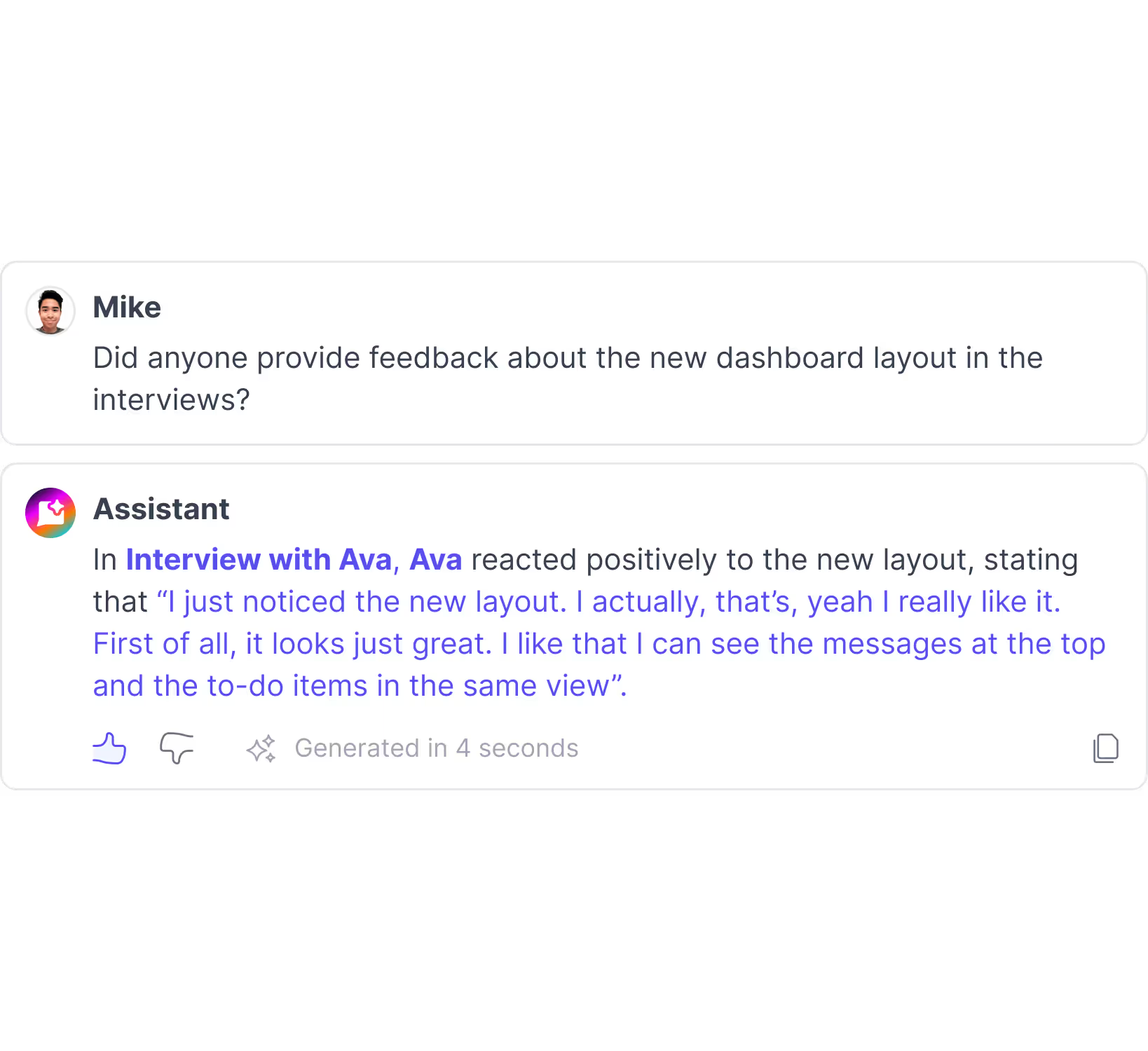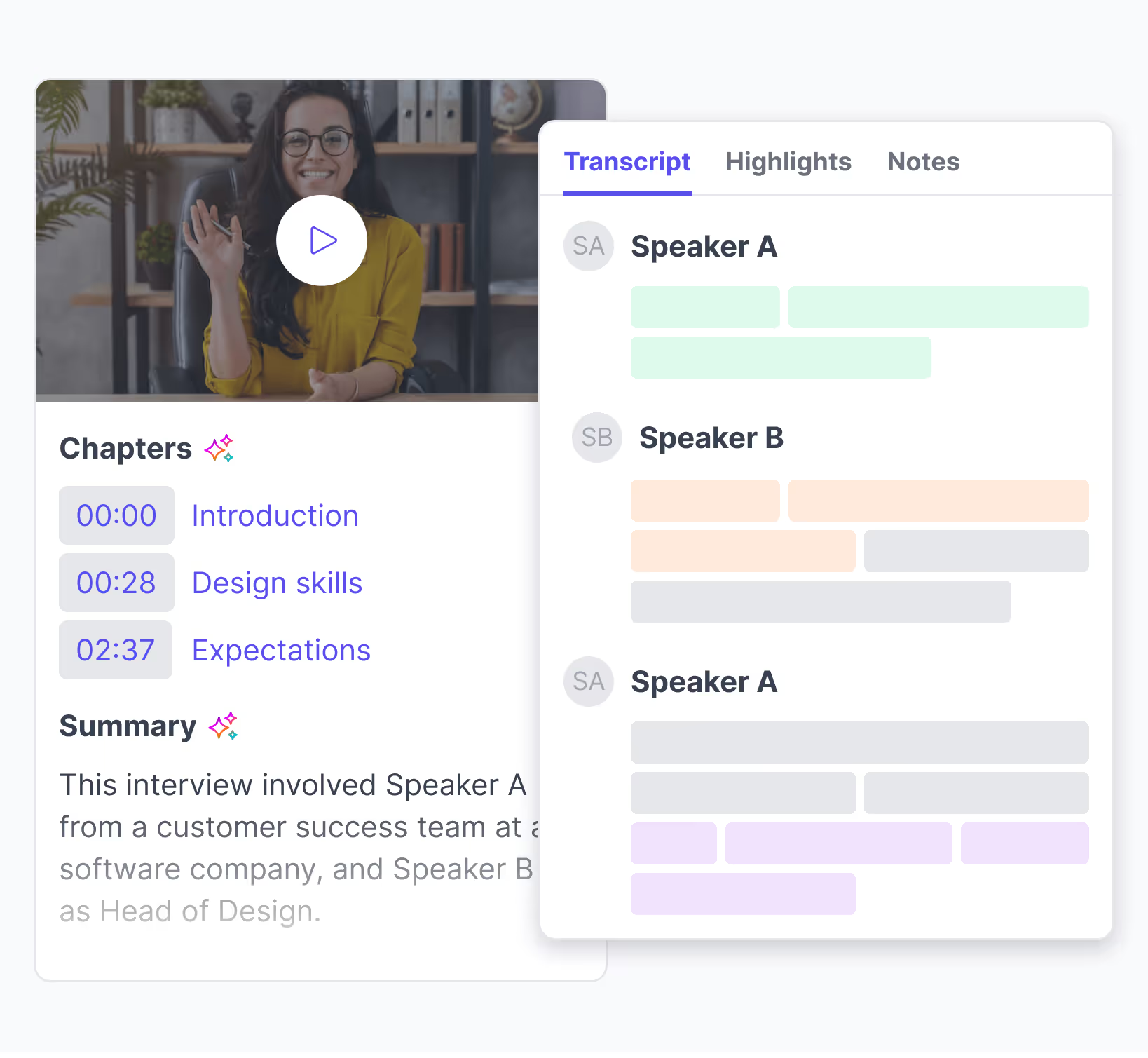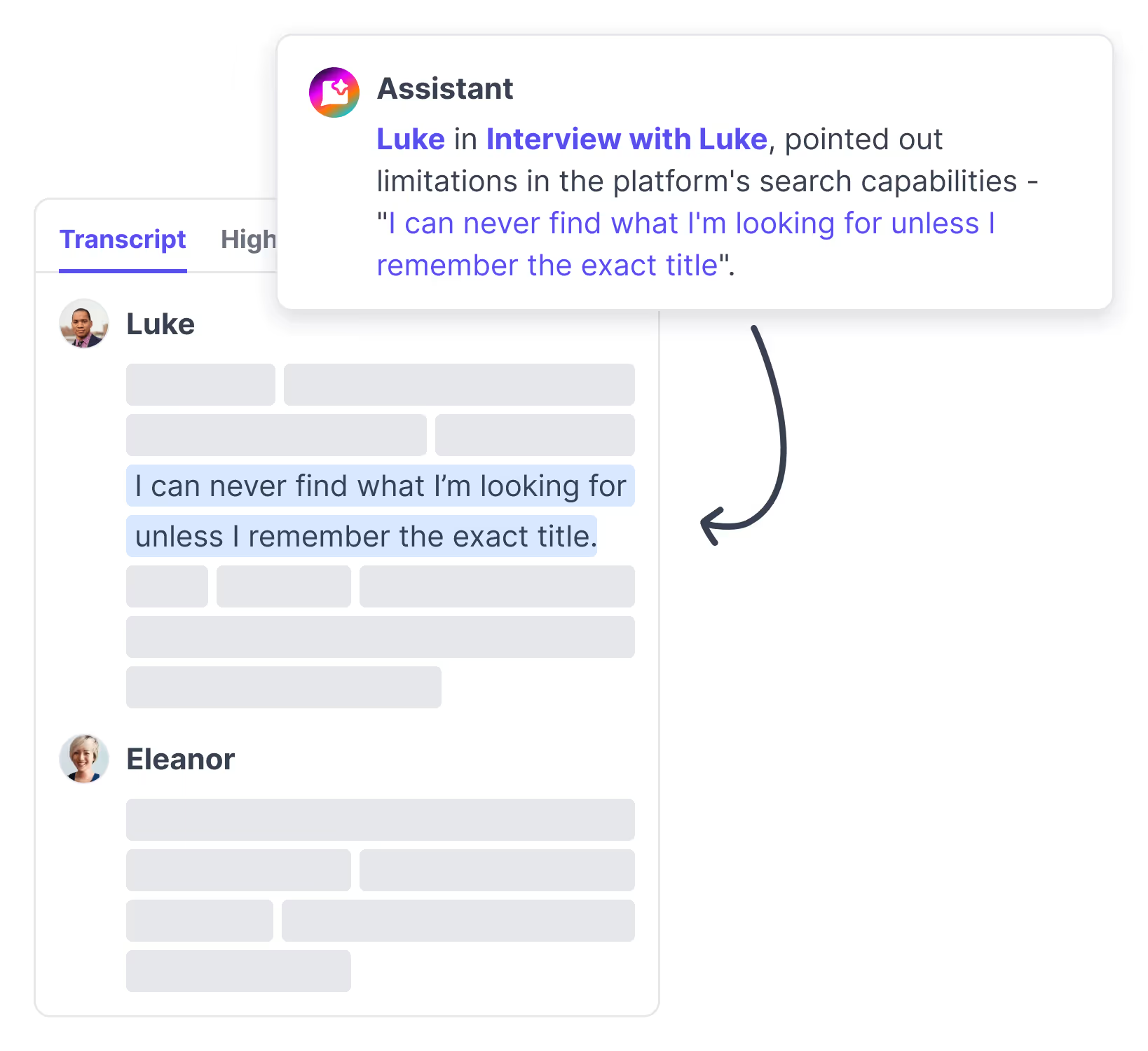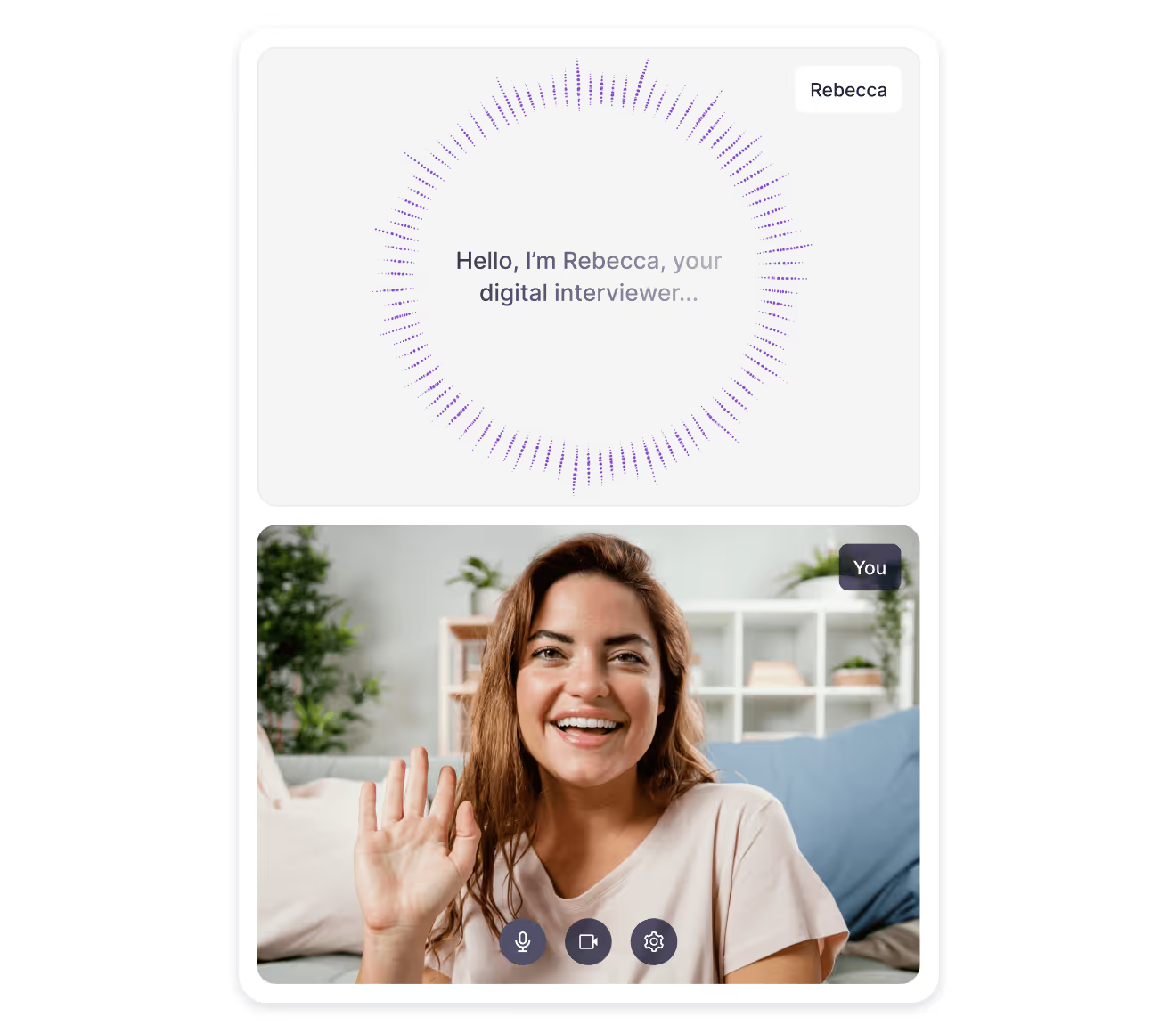We’re building research intelligence: AI that connects study creation, moderation, and synthesis to help you plan smarter, run deeper studies, and distill insights faster - compounding value with every study.





"The automated summaries and chapters perfectly complement the already excellent transcripts. They save me time when checking how an interview went, or synthesizing my own studies."


"With Ask AI, we can now get an initial analysis of hours of interviews in minutes. This feature helps us move faster when understanding user needs and problems and creating features to address them."


"The AI Assistant has expedited my data analysis process and streamlined the time to provide early research insights to our organization. Thank you for developing a tool that makes my job easier."




